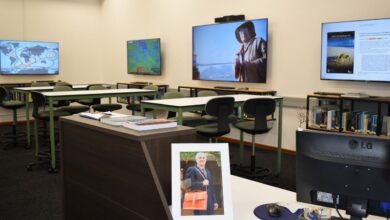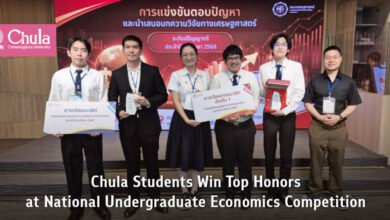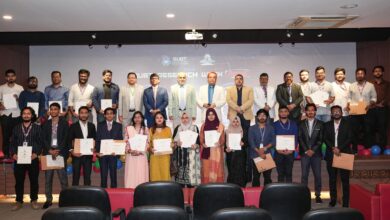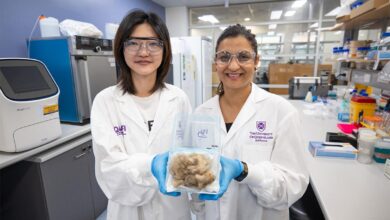Thammasat Researchers adopted interdisciplinarity, increasing the production standard of Thai durian
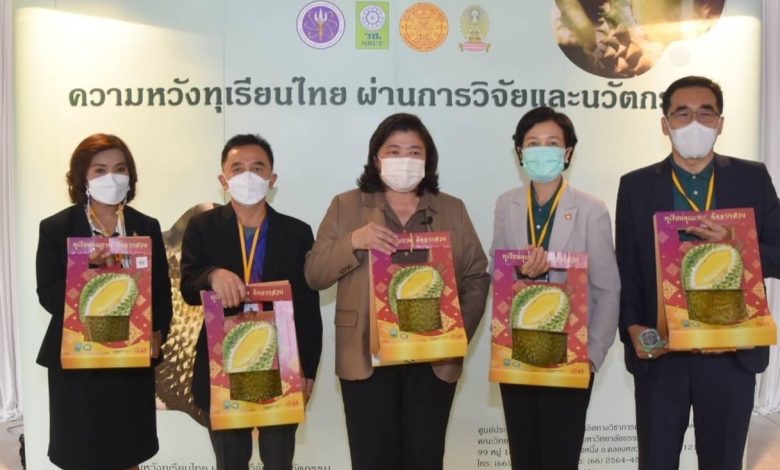
Assoc. Prof. Dr. Worapat Wachirayakorn, Lecturer from the Faculty of Science and Technology, Thammasat University and the manager to the research project on “Developing Thai Farmers toward Smart Farmers (A Case Study of Developing Durian Farmers for Export)” received a research grant supported by the National Research Council of Thailand (NRCT) of the Ministry of Higher Education, Science, Research and Innovation (MHESI).
This research project consists of various researchers with a wide range of expertise from the Faculty of Science and Technology, Thammasat University, including Assoc. Prof. Dr. Worapat Wachirayakorn (Research Project Manager), Assoc. Prof. Dr. Suphet Jirakajornkul, Assoc. Prof. Dr. Thanit Ruangrungchaikul, Asst. Prof. Dr. Rewat Jaisutthi, Asst. Prof. Dr. Wilawan Chueboon and Professor Dr. Pruk Chutimanukul, with Ms. Piyapong Sonkaew and Ms. Thanatcha Chaida, researchers from the Office of Advanced Science and Technology, Thammasat University and a researcher from different institution, Assoc. Prof. Dr. Krirk Piromsopha from Chulalongkorn University, thus bringing expertise in distinct fields to integrate across discripinary to focus on research outcomes that project useful results and allow timely problem solving both academically, economically, socially and policy, especially “durian”, which is the main economic fruit of the country.
Assoc. Prof. Dr. Worapat Wachirayakorn, Lecturer of the Faculty of Science and Technology, Thammasat University and the research project manager said that the results of this research is under the framework of research on the principle of increasing productivity through innovation and technology. The aim is to develop research and transform them into a knowledge platform that durian farmers can access and use to increase production quality according to prescribed standards, minimize production costs, and reduce labor usage through the adoption of various innovations and integrated technologies to support standards of good agricultural practice. The main focus is on allowing farmers to access the body of knowledge, and solve production problems which enable farmers to develop quality produce that meets international standards in accordance to the GAP standard.

